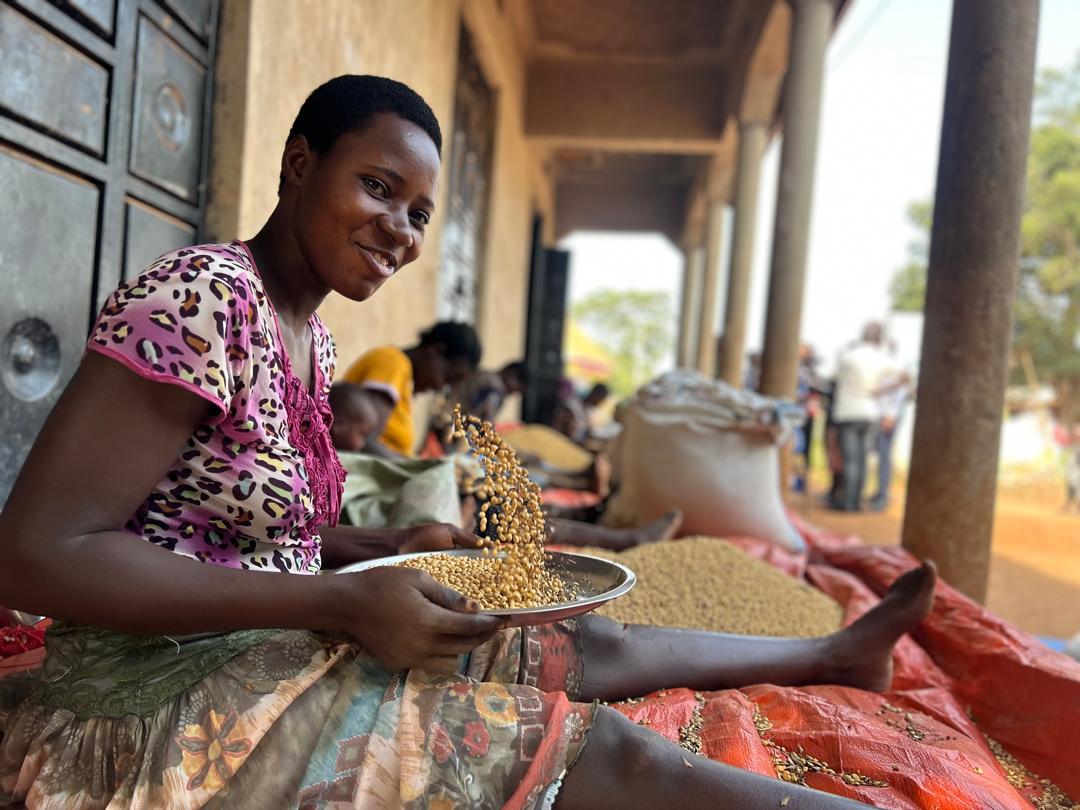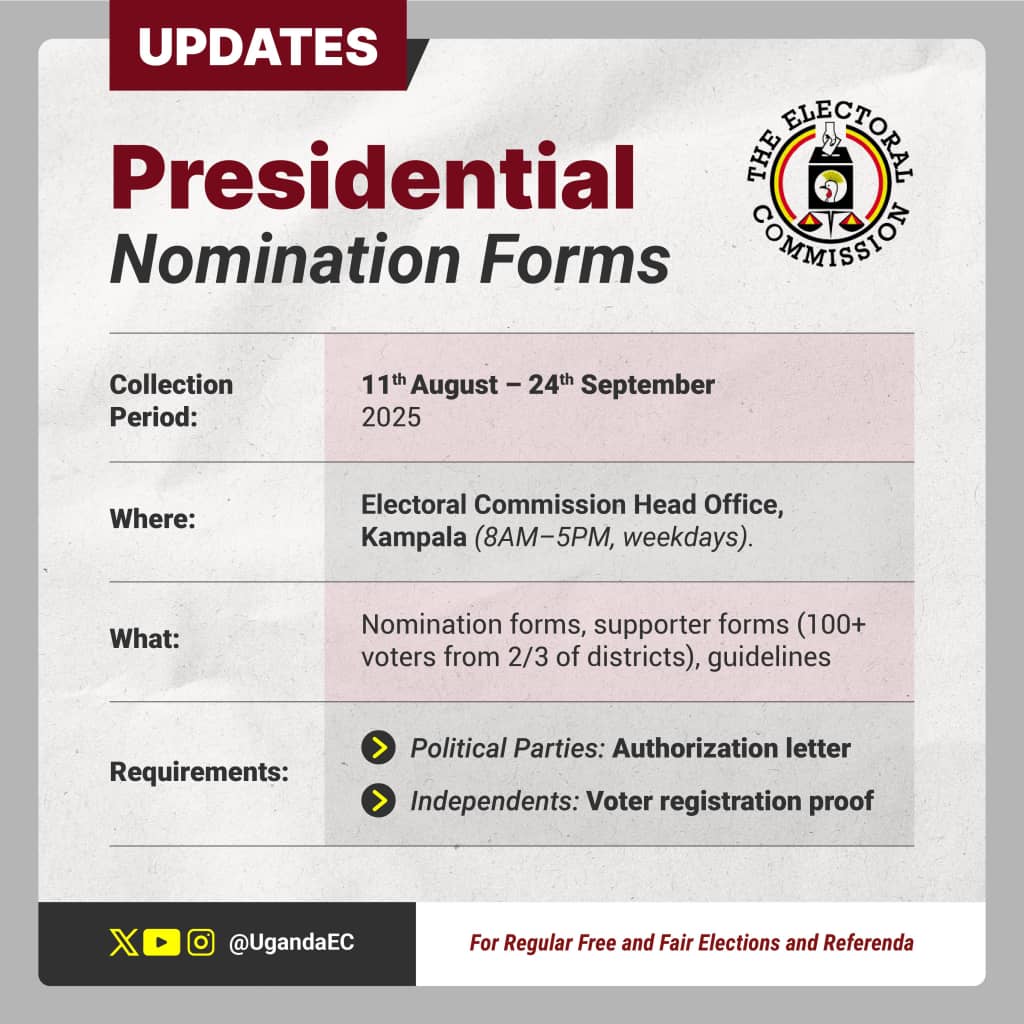In a decisive move that signals a renewed push for political change, the Forum for Democratic Change (FDC) has launched its manifesto ahead of Uganda’s highly anticipated 2026 general elections.

At the heart of the announcement is the party’s presidential candidate, Rt. Hon. James Nathan Nandala Mafabi, whom the FDC describes as the man to “fix the broken economy” and lead Uganda into a new era of stability, prosperity, and unity.
Speaking at the party’s national launch, FDC Chairman Hon. Jack Sabiiti delivered a pointed message to Ugandans: the time has come to break with the past and elect a new kind of leadership. “Ugandans face a choice: to continue enduring a broken-down economy and worsening poverty, or to usher in a new chapter under the competent and compassionate leadership of Nandala Mafabi,” Sabiiti said.
Nandala Mafabi brings over two decades of political and professional experience. An accountant, lawyer, teacher, and successful cooperative leader, he is perhaps best known for his tenure as Leader of Opposition in Parliament (2011–2014) and as Chair of the Bugisu Cooperative Union (BCU). His leadership has been marked by efforts to revamp public accountability and rebuild grassroots economic institutions.
“He is not just a politician. He is a humble servant who understands the pain of ordinary Ugandans and has the skillset to fix it,” said Sabiiti.
FDC’s party president Patrick Oboi Amuriat framed the manifesto launch as a culmination of the party’s internal renewal and resilience.

He said despite three major breakaways in recent years, the FDC remains intact and strong, having rebuilt its structures from the grassroots to the national level.
Amuriat reaffirmed that the selection of Mafabi as the party’s presidential flagbearer was a democratic, people-led process.
“We went to the countryside, listened to our supporters, and emerged with consensus. The people chose Nandala,” he said.
The manifesto, titled “Fixing the Economy: Money in Our Pockets,” lays out a comprehensive five-year plan focused on job creation, public sector reform, agricultural revitalization, and fiscal discipline.
Amuriat added, “Our citizens are tired of false promises and corruption. Under Nandala’s leadership, the FDC will deliver what Ugandans have long deserved, competent governance and a working economy.”
In an emotional and direct address, Mafabi painted a stark picture of Uganda’s current economic despair, rising unemployment, collapsing businesses, decaying infrastructure, and a ballooning national debt.
With over 84% of Ugandans classified as dependents, he said, the country is running on borrowed time.
“I have walked across this country. I have seen the hunger, the hopelessness, the struggle. But I have also seen resilience. I believe that we can fix this country, together,” said Mafabi.
He committed to filling vacant government positions, revitalizing cooperative unions, expanding agricultural processing, and investing in job-creating sectors like tourism, fisheries, and mineral development.
Mafabi also took a firm stance on Uganda’s debt crisis, criticizing the current regime for reckless borrowing that has pushed the country past the recommended 50% debt-to-GDP threshold.
“We had a chance to rebuild after debt relief in 1997. We blew it. This is our second chance, and this time, we won’t waste it,” he stated.
Key highlights of the FDC manifesto include; employment creation with focus on productive sectors such as agriculture, trade, oil and gas, mineral development, and tourism; target 10% of national budget for agriculture; establishment of regional industrial zones and farmer service centers, and support youth employment and skill training.
Agriculture for Economic Transformation (AETA) through modernizing agriculture through access to credit, extension services, and irrigation systems, promote value addition and cooperative-based marketing, and to revive Coffee as “black gold” through improved pest control, coffee colleges, and support for women and youth in the sector.
They also intend to boost fisheries and the blue economy by removing military from fishing regulation, invest in aquaculture, modern fish terminals, and processing infrastructure, and support women and youth in fish farming and alternative livelihoods.
In a bid to deal with fiscal responsibility and debt reduction; the party intends to cut extravagant government spending, prioritize high-impact infrastructure and public services, and implement a frugal, transparent resource management model.
To strengthen international and regional cooperation, they intend to engage in peaceful diplomacy amidst global tensions (U.S.–China, Russia–Ukraine, Israel–Palestine), and promote regional stability in East Africa, especially with DRC and South Sudan among others.
A call for peaceful transition
Both Amuriat and Mafabi emphasized the need for a peaceful democratic transition after 40 years of one-party dominance under the NRM. “We’re not just offering policies; we are offering a peaceful path forward, One Uganda, One People,” said Mafabi.
As Uganda prepares to go to the polls on January 12, 2026, the FDC has placed itself in sharp contrast with the ruling party, pledging not just to oppose, but to govern.
“Your vote will not just be a protest. It will be an investment in a better Uganda,” Mafabi concluded.


















